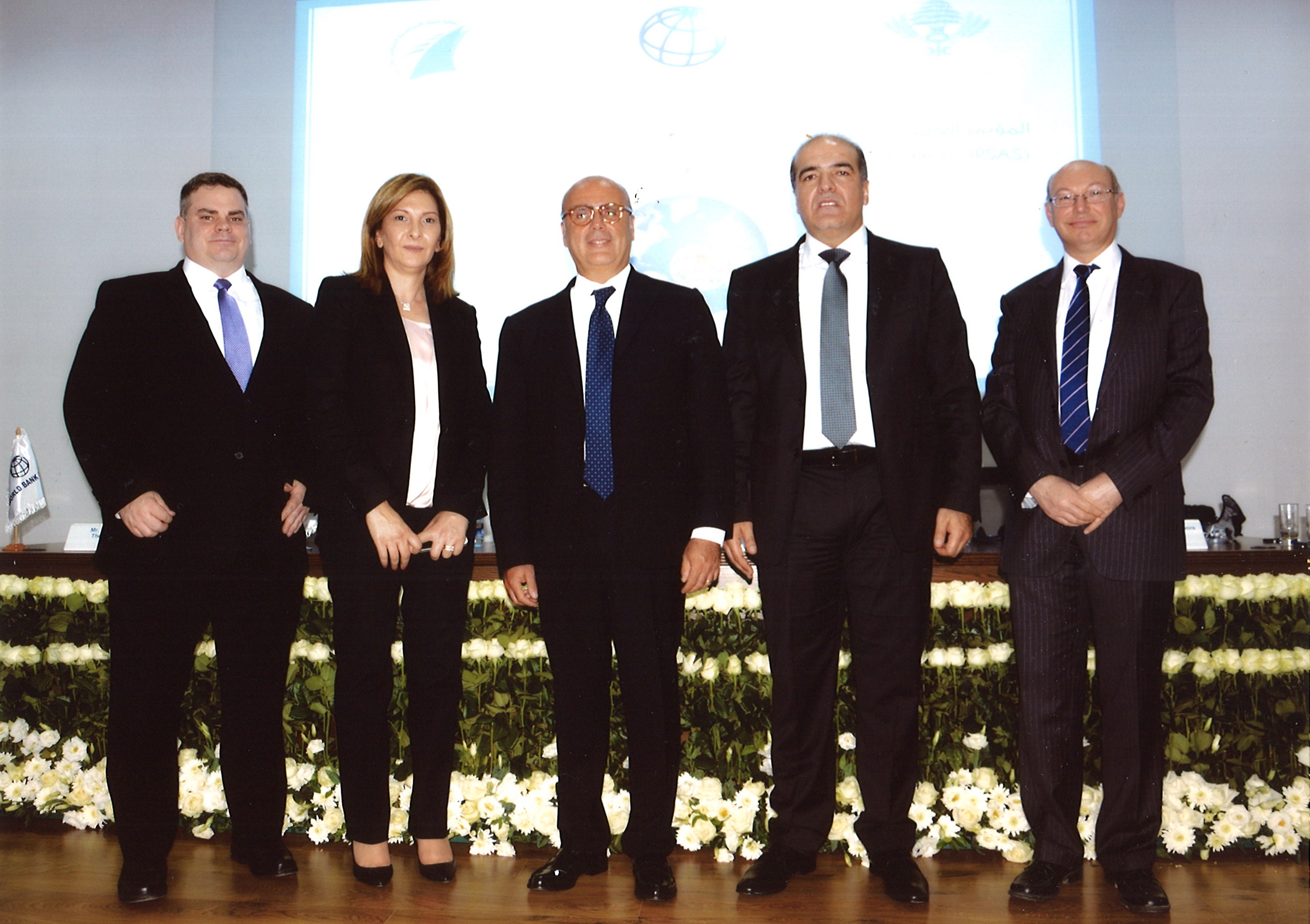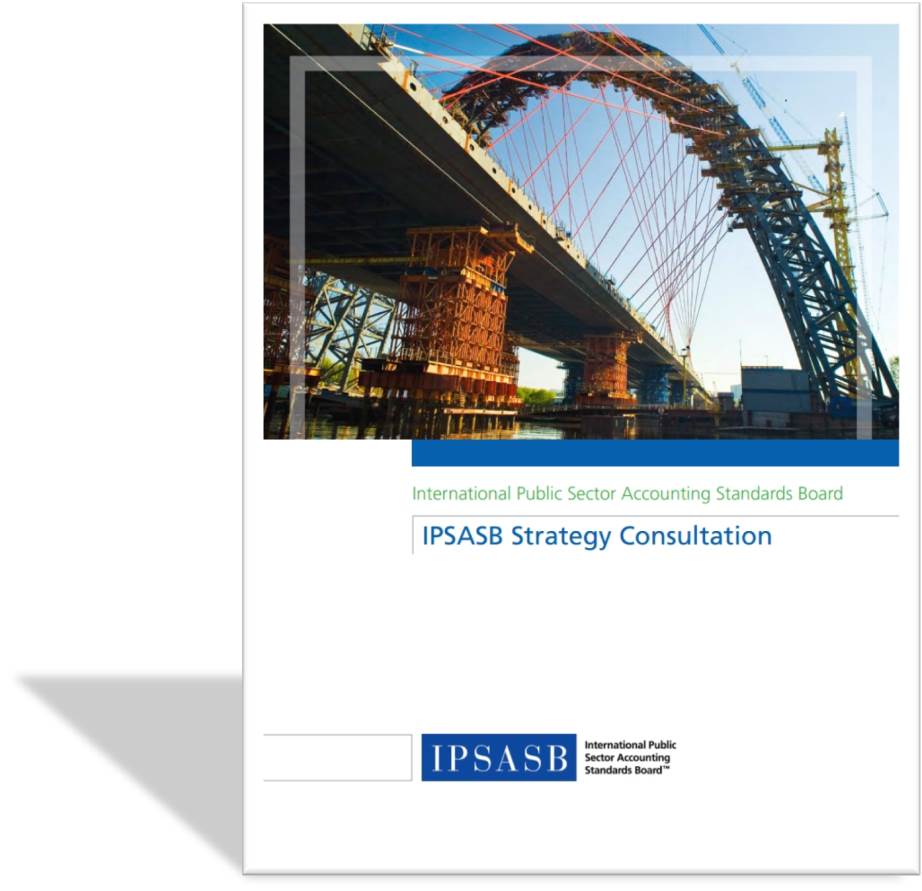Ladies and gentlemen, esteemed Minister of Finance, distinguished President of LACPA, eminent authorities and dear colleagues,
On behalf of the IPSASB and from my personal side, I am delighted to express my gratitude for the invitation to speak to you today. And I would like to acknowledge the Ministry of Finance, the Lebanese Association of Certified Public Accountants and the World Bank, for making this event possible.
Even though I only have ten minutes for this speech, I will do my best to convince you that IPSASs are the best way of accounting for governments…
Should I fail – I am sure that the training course that will be held this week will demonstrate that IPSASs can be a realistic and successful endeavour for governments.
However, I do not want to disappoint you in full, and, so, I am going to briefly address three topics I consider key to this week’s discussion: WHAT information is provided under an IPSAS-based system; HOW IPSASs improve the quality of financial reporting for governments; WHY you should adopt IPSASs, focusing on expected benefits.
IPSASs are standards for government financial reporting. IPSASs are not requirements for preparing and using budgets during the year. IPSASs are applied in the preparation of end-of-year reports to communicate to the entire user community the financial position and financial performance of public sector entities. We call these reports General Purpose Financial Reports.
IPSASs are full accrual accounting standards. The term “full” means that the government entity accounts for all transactions, which affect its financial position, prior to - and regardless of - any movements in cash. However, the term “full” also refers to a comprehensive notion of financial position that includes cash – IPSAS “followers” do not question that cash is relevant! – But such a notion extends well beyond cash, encompassing all the financial and non-financial assets and liabilities. As a consequence, financial performance is the change in net assets over the reporting period, which is much more than movements in cash.
So, an IPSAS-based system provides more information than a cash system or any other system that doesn’t account for all the transactions, all the assets and all the liabilities of an entity. That is why we need an integrated set of 38 accruals IPSAS, concerning the recognition, measurement and presentation of components of the financial position and performance of an entity. That is why in September 2014 we have issued a Public Sector Conceptual Framework, which provides guidance for preparers of General Purpose financial reports for public sector entities. And that is why we are continuously developing new projects dealing with issues not currently covered by the existing IPSASs, such as accounting for social benefits and public sector specific financial instruments. Let me say that for the IPSASB the horizons of full accrual reporting are constantly shifting, as new issues emerge across the globe.
But transitioning to IPSASs is not only a matter of more information…It is also a matter of better information.
IPSASs are issued by an international standard setter operating in the public interest under the auspices of the IFAC, the worldwide organization of the accountancy profession. If I may say so the IPSAS Board is a unique hub of expertise in the field of government accounting. I am honoured to work with 17 high-standing professionals, selected – on the basis of an official nomination procedure – from ministries, audit institutions, the accountancy profession, and academia of all corners of the world. They are supported by Technical Advisors and a dedicated staff of 8 people.
The IPSASB operates as an independent, global, and accountable standard-setter. Being an independent board means that we are open to dialogue with all stakeholders, but our work is not biased to the needs of any of them. Being global means that we continuously work to identify, assess and add to our agenda emerging world-wide issues. Our standards are not meant to serve the specific needs of single countries or international institutions but to serve the global user community.
We like to be independent but we do want to be accountable. IPSASB’s capacity to work in the public interest in a transparent way is overseen by the Public Interest Committee that has been established in 2015 and includes representatives from international institutions which have an interest in government accounting, such as the OECD, the IMF, the World Bank, and IOSCO.
The entire work leading to the issue of a new standard has to comply with “due process”. All the IPSASB’s agenda materials and meetings are open to the public. Throughout due process, key documents are submitted to public consultation in the form of Consultation Papers and Exposure Drafts. We attach the utmost care to the fact that opinions and comments gained through public consultation are taken into consideration in the course of our work.
So IPSASs are intended to be high-quality standards which set requirements for high-quality financial information in the interest of users, that is to say financial information that is relevant, faithful, understandable, timely, comparable, verifiable and internationally consistent. Among those characteristics, let me point out that the IPSASs are the only set of international accounting standards designed for the public sector at present.
Applying them means having financial reports prepared on the basis of standards acknowledged at the international level, and thus financial reports that can be understood, analysed, compared, audited anywhere on the basis of a shared international language.
Developing IPSASs is undoubtedly a costly activity. It may be argued that also applying them can be a costly exercise. Nevertheless, the increasing number of countries and international institutions that have already adopted IPSASs or are on the road to adopting them, demonstrates that this is a feasible venture and that the expected benefits can overrun the costs of transitioning to, and managing the new system.
Over 40 national governments have, or are in the process of adopting IPSASs. A number of projects have reached milestones or are fully completed such as Austria, Spain and Kazakhstan. Strong momentum in IPSAS adoption has emerged in Latin America such as Chile, Colombia, Brazil, Panama and Costa Rica. In South-East Asia, countries such as Indonesia, Malaysia, China, Cambodia and Vietnam, are at the forefront of adoption. IPSAS adoption in Africa is being led by, Nigeria, Ghana, Tanzania, Kenya, Uganda, Rwanda and Burundi. There is an increasing literature on national cases available, as different jurisdictions adopting accrual IPSASs have documented their experiences and benefits gained. I would highlight as interesting case studies those of Costa Rica, Guatemala, Malta, Malaysia, Panama, Austria and Switzerland.
It should be noted that the approach to adoption of IPSASs is varied in different jurisdictions. Some have adopted IPSASs directly as they are, some others are using IPSASs indirectly as a basis or reference for their own set of national standards. A flexible approach to adopting IPSASs is then possible. Let me stress, however, that the more IPSASs are modified during the application stage, the fewer the benefits that can be expected from their application.
This leads us to the benefits of applying IPSASs.
The recent sovereign debt crisis has been described as a “balance sheet crisis”, that is to say that the understanding of the financial position of governments and potential shocks to that position was inadequate, as shown by the emergence of previously unrecognized deficits and debts.
As IPSASs enable a more comprehensive and accurate portrait of the financial position and performance, and the impact and sustainability of public policies, they provide a better basis for decision-making at different levels of governments and provide robust support to public financial management. In particular, because the IPSASs give a full vision of the resources of an entity and its obligations, they make it possible to manage them in a more informed way. Also, service management can be based on a fair view of the costs incurred, of the sources to recover them and whether the entity has acquired resources economically and used them efficiently in the delivery of services. Let me just say …you can only manage what you know…
Most monitoring authorities for financial stability currently base their decisions on outcomes provided by government finance statistics. IPSASs are not meant to provide the same information or to serve the same needs as statistical accounting systems. Nevertheless, government finance statistics (GFS) are based on an accrual approach and build upon financial accounting data produced at single entity level. As the application of IPSASs improves the quality of basic accounting data, it results in greater reliability of the figures provided for the general government sector by GFS and allows the reconciliations between statistics and accounting.
In the wake of the sovereign debts crisis, there is a greater awareness of the importance of better information concerning public sector borrowers for the assessment of sovereign risk by financial markets. In this context, IPSASs have been addressed by some international financial institutions as a main tool for improving fiscal transparency of governments. There is also increasing evidence – and a growing body of empirical research showing that enhanced fiscal transparency is associated with better sovereign credit ratings for both advanced and developing economies. This naturally, results in a reduction in the cost of government debt. This, in the long term, can be expected to positively impact on governments’ finances.
Shifting from cash to accrual accounting calls for cultural and mind-set changes; requires overcoming strong resistance to change; and demands investments in training and IT systems.
The IPSASB can help governments with the transition process. We have issued a Study document and a specific IPSAS – IPSAS 33 - to assist with transition issues and we are willing to be involved in supporting activities, such us this week’s training course.
Nevertheless, lessons learned show that change is not possible without a strong commitment at the very top of both politicians and government officials. Struggling with budget constraints is not only a Lebanese problem. Social consensus is necessary anywhere when investing resources in a new accounting reform.
It is fundamental that the need for change is communicated to people in the right manner. It is not merely a book-keeping exercise. Definitely, applying IPSASs impproves decision-making in the public sector facilitates holding governments accountable and enhances fiscal stability and sustainability.
As an accountant, I believe this is not only in the interests of technocrats, markets or financial institutions. It touches the rights and wealth of each member of our community as a resource provider or service recipient.


